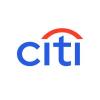 Avalanche blockchain plays key role in Citigroup’s tokenization success story
Avalanche blockchain plays key role in Citigroup’s tokenization success story Avalanche blockchain plays key role in Citigroup’s tokenization success story
Citi believes that the vision for digital-native products will unlock new capabilities and operational benefits, paving the way for fully auditable and traceable transactions.

Cover art/illustration via CryptoSlate. Image includes combined content which may include AI-generated content.
US banking giant Citigroup has released a comprehensive report detailing the successful integration of Distributed Ledger Technology (DLT) into the private market sector through fund tokenization on the Avalanche blockchain network.
According to the report, DLT offers a “significant opportunity” to revamp capital markets infrastructure, enabling innovative investment products and enhancing workflow efficiencies. It echoes the sentiment held by other big banks and some regulators regarding tokenization and its potential benefits.
The report begins by tracing the historical evolution of financial markets, from the early days of physical stock certificates to the electronic trading platforms of today. It emphasizes the gradual but inexorable shift towards digitization, a movement that has accelerated with the advent of blockchain and DLT.
This historical perspective is crucial for understanding the significance of tokenization as not just another incremental change but a potential paradigm shift in how assets are issued, traded, and managed.
Proof-of-concept
Citi believes that the vision for digital-native products will unlock new capabilities and operational benefits, paving the way for fully auditable and traceable transactions. The report is the successful culmination of the bank’s tokenization Proof-of-Concept (PoC).
The PoC highlighted several key advantages of tokenization, such as streamlined workflows, the automation of compliance processes through smart contracts, and faster settlement times. These practical benefits testify to the feasibility and utility of adopting DLT in fund management and operations.
The report also outlines the core benefits of DLT, which further include enhanced liquidity and the potential for fractional ownership of assets. These features are particularly relevant in the context of private markets, which have traditionally been characterized by high entry barriers and limited liquidity.
Challenges in adoption
While the benefits of fund tokenization are compelling, the report adopts a balanced view by also addressing the challenges involved in transitioning to a digital asset ecosystem.
Among these challenges are the need for robust legal and regulatory frameworks, the interoperability of different DLT platforms, and the integration of digital assets with existing financial infrastructures.
Moreover, the report emphasizes the importance of addressing data privacy and security concerns, ensuring that tokenization does not compromise the integrity of financial transactions.
Looking forward, the report calls for collaborative efforts among financial institutions, regulators, and technology providers to foster an ecosystem that can support the widespread adoption of tokenization.
It envisions a future where digital and traditional assets coexist seamlessly, offering investors greater flexibility, efficiency, and access to a broader range of investment opportunities.



























































